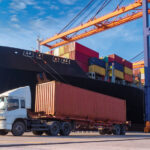AfCFTA Agreement: promises and pitfalls
AfCFTA Agreement: promises and pitfalls
The Africa Continental Free Trade Area Agreement promises great things. But it’s not without its challenges, as ANCHAL ASHI BANIPARSADH reports.
For too long, countries on the African continent have been labelled “underdeveloped” or “developing”. This can be attributed largely to intra-continental barriers and those countries’ reluctance to forge collaborative agreements with a global growth perspective in mind.
The Africa Continental Free Trade Area (AfCFTA) Agreement has the potential to change this, however – by fast-tracking the expansion of African economies, making them globally competititve and strengthening African value chains.
The Agreement reinforces the need for intra-continental integration and it’s a first step towards greater global economic integration. According to the World Bank, the pact connects 1,3 billion people across 55 countries with a combined gross domestic product (GDP) valued at US$3,4 trillion.
The promises
There are undoubted benefits: by enforcing trade integrity through legitimate transactions, the Agreement will provide a common regulatory framework, reducing the market fragmentation currently caused by different sets of rules. It also heralds the relaxation of certain tariffs, duties and quotas, thus eliminating some of the red tape that has inhibited trade growth in the past.
We are at a critical point at which coaching, training, mentoring, business advisory services and women-empowerment initiatives have become critical. Through addressing the lack of trade-related technical expertise and the cultural limitations of (African) women’s freedom to trade, it is hoped that the Agreement will expand supply chains across local borders.
The World Bank estimates that, if the AfCFTA Agreement is successful, intra-continental exports will increase by 81%, while exports to non-African countries will rise by 19% by 2035, uplifting 30 million people from extreme poverty and 68 million people from moderate poverty. (According to UNCTAD, intra-African exports constituted 16,6% of total exports in 2017, compared to 68,1% in Europe, 59,4% in Asia, and 55% in America.)
The Agreement aims to facilitate a shift towards increased logistics, transport and maritime activity, providing fertile ground for start-ups. It’s an opportunity for small to medium industry players, who were battered by adverse economic trends or the Covid pandemic, to flourish.
A new wave of e-logistics start-ups is expected to improve efficiency and promote cost reductions in all logistical activities in the supply chain.
Not so fast…
As attractive and promising as it may seem, the AfCFTA Agreement presents several obstacles to be overcome if it is to transform the continent’s economic prospects as envisaged.
For the Agreement’s achievements to be deliverable and sustainable, role players in the logistics and transport fraternity need to focus on optimisation and digitisation as the key drivers to revolutionise their operations.
Although they may open up their borders to trade, many African countries still grapple with poor transport and logistics networks and inefficient, ageing infrastructure, which proves more costly and inhibits growth, leaving those jurisdictions lagging in many respects, particularly technological advancement.
The agreement is expected to increase the demand for investment and expansion of transport and logistics infrastructure. This will be one of the most crucial factors that will inform the rate and extent of the success of the initiative and the pace at which the transformation of African economies will take place.
The ability of governments to support SMMEs and to invest resources in infrastructure development will determine the extent to which the AfCFTA Agreement will reach the desired results. It will also become increasingly imperative for governments to create an attractive investment climate for private investment, by promoting industrialisation and the production and export of value-added goods. However, the reality is that many African countries lack the political stamina and stability for catalytic growth to become a reality; others lack the resources.
The pitfalls
While the AfCFTA Agreement envisions intra-continental free trade, it may often come coupled with the need for free movement of labour, which attracts its own set of challenges. The realities of promoting the free movement of people are apparent in many African countries, where political agendas, socioeconomic dynamics and demographic diversity spark problems such as xenophobia.
As a major trading nation on the continent, South Africa displayed reluctance to sign the Protocol on Free Movement of Persons (FMP). Of course, the unregulated movement of people raises security and health concerns. But jurisdictions could negotiate FMP agreements that included conditions or exemptions regarding the category of persons who are allowed free movement. However, a conservative approach to such decisions is required in order to maintain stability in the socio-economic and political environments, while balancing this with the need for economic integration into the wider global landscape.
South Africa’s road freight sector has been brought to a standstill on numerous occasions and as recently as a week ago by disgruntled truck drivers in a bid to prevent the employment of foreign drivers in light of the high unemployment rates among local truck drivers. The direct financial losses suffered by transport companies, in addition to the cumulative losses to the entire supply chain and the economy at large, is tremendous, particularly in this post-Covid recovery phase.
If one assesses an incident of this nature against the backdrop of the prospective benefits of the AfCFTA Agreement, where will South Africa be ranked in terms of realising its potential benefits? The lack of urgent government intervention could exacerbate matters and breed chronic instability in the transport and logistics sector, ultimately compromising many of the attractive trade benefits associated with ratification and implementation of the AfCFTA Agreement.
Published by
Anchal Ashi Baniparsadh
focusmagsa




